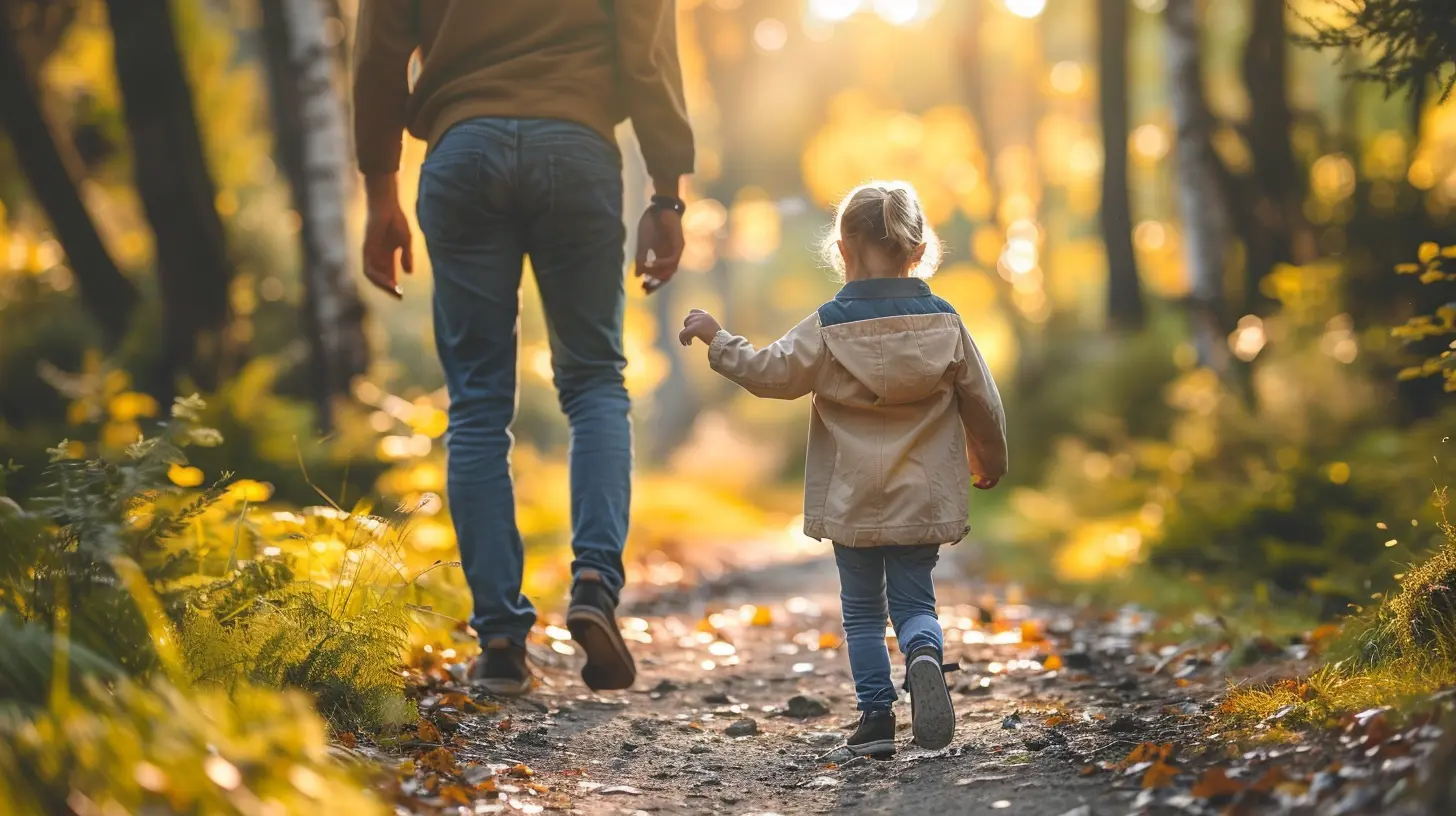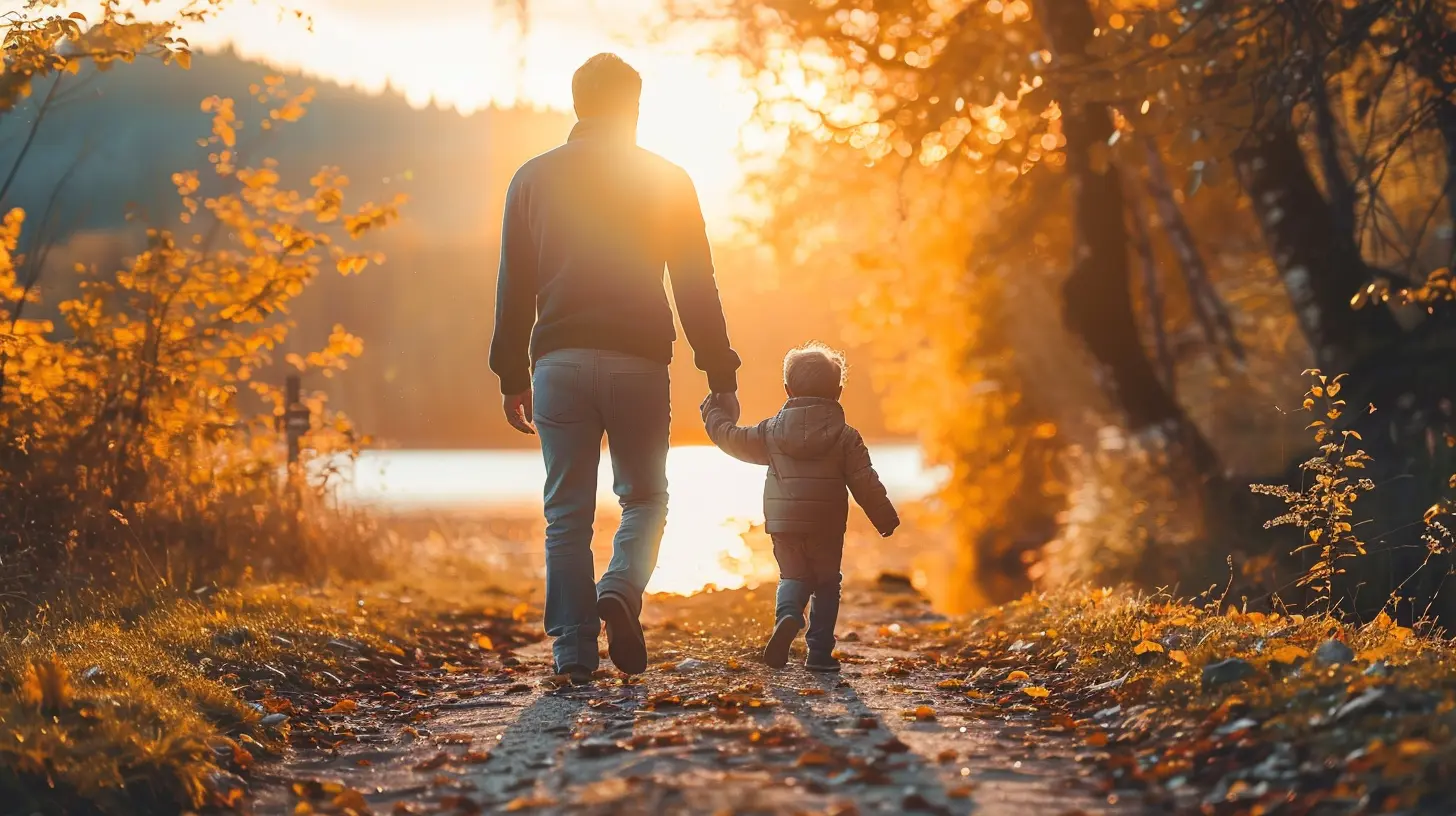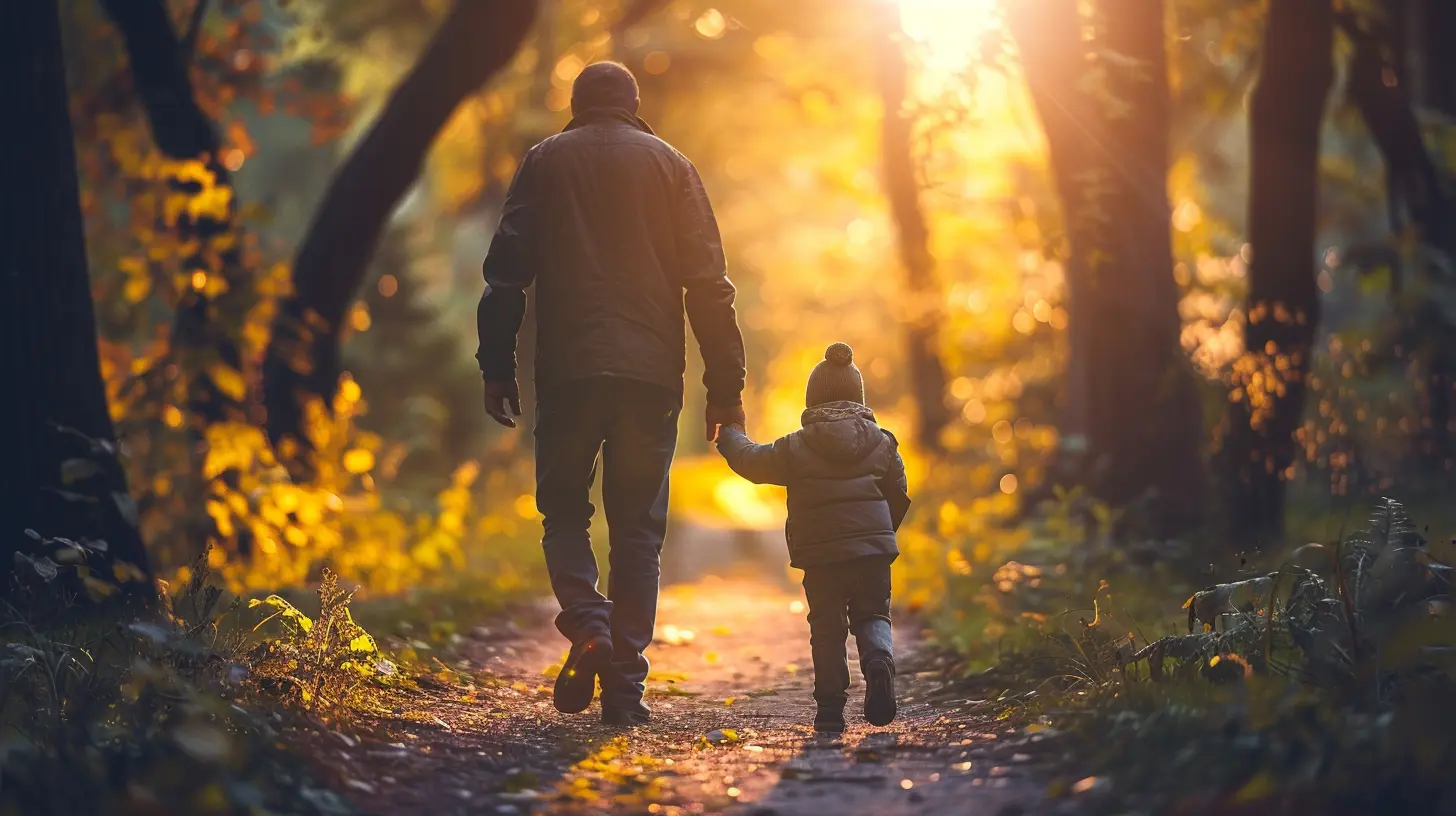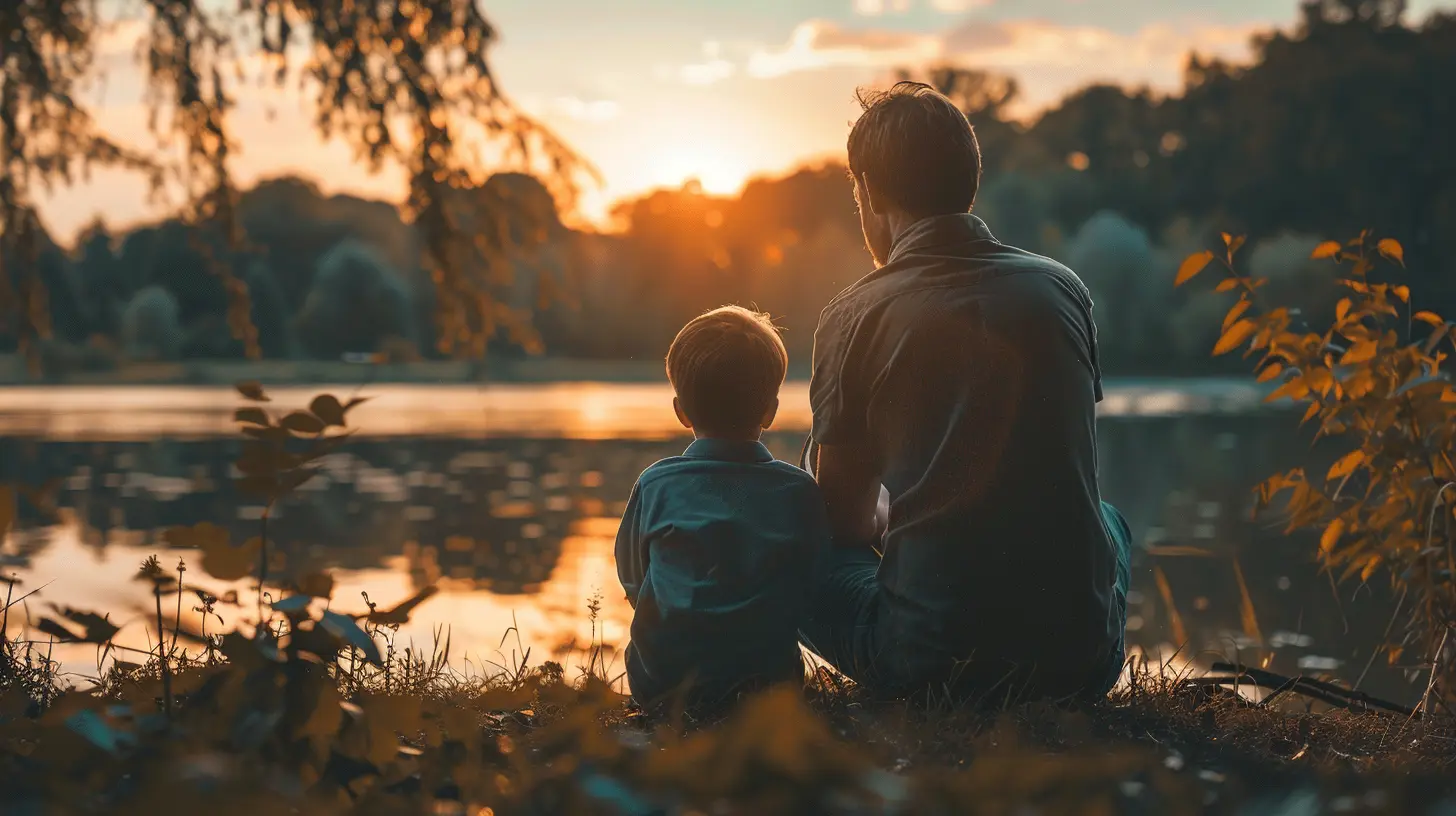The Power of Parental Modeling: How Your Behavior Shapes Your Child
29 August 2025
Ever heard the phrase, "Children are like sponges"? They absorb everything—your words, your actions, and even your emotions. Whether you realize it or not, your child is always watching, learning, and imitating you. That’s the power of parental modeling.
Think about it: how often do you catch yourself saying or doing something exactly like your parents did? It’s no coincidence—children mirror their caregivers. The way you handle stress, express emotions, or treat others shapes their understanding of the world. So, if you want to raise kind, confident, and responsible individuals, it starts with you.
In this article, we’ll dive into how parental behavior influences children, why modeling matters, and how you can be a positive role model.

Why Parental Modeling Matters
Parental modeling isn’t just a psychological theory—it’s a fundamental part of child development. Kids don’t just listen to what you say; they focus on what you do.Imagine telling your child to be patient while aggressively honking in traffic. What lesson do you think they’ll take away? Actions always speak louder than words.
1. Children Learn Through Observation
From infancy, children rely on observation to understand the world. This is called observational learning, a concept introduced by psychologist Albert Bandura. He believed that kids don’t need to experience something firsthand to learn it—they simply need to watch someone else.For example, if a child sees their parents reading books regularly, they’re more likely to develop an interest in reading. Similarly, if they see frequent yelling and aggression, they may adopt those behaviors in their own interactions.
2. Actions Leave a Lasting Impact
Children remember what they see. Even small, seemingly insignificant behaviors can leave an imprint. Your daily habits, whether it’s how you handle stress, communicate with your partner, or treat strangers, shape their worldview.If you show kindness and patience, your child learns that these traits are valuable. If you frequently complain or criticize, they may develop a negative mindset.
3. Parental Behavior Shapes Emotional Development
Children look to their parents for emotional regulation. Ever notice how a baby might cry simply because their parent looks upset? This happens because they tune into your emotions.If you manage stress by practicing deep breathing instead of lashing out, your child learns healthier ways to cope with frustration. On the other hand, if they grow up in an environment of constant tension, they may struggle with emotional regulation later in life.

The Key Areas Where Parental Modeling Has the Biggest Influence
Now that we understand why parental modeling matters, let’s explore the key areas it impacts most.1. Communication and Social Skills
Children learn how to communicate by watching their parents. Do you listen attentively when your child speaks? Do you interrupt or dismiss their feelings? These habits shape how they will interact with others.A child who is spoken to with respect and empathy is more likely to develop strong communication skills. Conversely, if they hear constant negativity or criticism, they might struggle with confidence in conversations.
2. Emotional Resilience
Life is full of challenges. How you react to setbacks teaches your child how to cope with difficulties.Do you stay calm when facing problems, or do you panic and complain? If you show resilience, perseverance, and problem-solving skills, your child will learn to handle obstacles more effectively.
3. Healthy Habits and Lifestyle Choices
Want your child to eat healthier, exercise, and practice good hygiene? Lead by example!If they see you choosing nutritious meals, staying active, and prioritizing self-care, they’ll naturally adopt those habits. On the flip side, unhealthy lifestyle choices—like skipping meals or excessive screen time—can set a precedent for bad habits.
4. Conflict Resolution
Every family has disagreements, but how you handle them makes all the difference. Do you resolve conflicts calmly and respectfully, or do you resort to yelling and blaming?Children who witness peaceful conflict resolution learn valuable problem-solving skills. They understand that differences can be discussed and resolved without hostility.
5. Work Ethic and Responsibility
Your attitude toward work and responsibilities directly influences your child’s mindset. Do you approach tasks with dedication and perseverance, or do you procrastinate and complain?If your child sees you take pride in your work and tackle challenges with determination, they’ll likely develop a strong work ethic.

How to Be a Positive Role Model
Being a great role model doesn’t mean being perfect. It’s about making a conscious effort to exhibit behaviors you want your child to learn. Here are some practical ways to become a positive influence in your child’s life:1. Practice What You Preach
It’s not enough to tell your child what to do—you have to show them. If you want them to be kind, be kind. If you want them to read more, read a book yourself. Consistency is key!2. Cultivate Emotional Intelligence
Teach your child how to express emotions in a healthy way. Instead of suppressing feelings or reacting impulsively, demonstrate emotional awareness. Say things like:- “I’m feeling frustrated right now, so I’m going to take a deep breath.”
- “I’m really happy about this! Let’s celebrate together.”
This teaches kids that emotions are normal and can be managed constructively.
3. Apologize and Admit Mistakes
Nobody is perfect, and that’s okay! When you make a mistake, own up to it. Saying “I was wrong, and I’m sorry” teaches children the value of accountability.It also reassures them that making mistakes is part of life and that learning from them is what truly matters.
4. Show Respect to Everyone
Kids don’t just watch how you treat them—they notice how you treat everyone. Whether it’s the cashier at the grocery store or a waiter at a restaurant, your interactions shape their understanding of respect and kindness.5. Prioritize Self-Care
Self-care isn’t selfish—it’s essential. Demonstrating the importance of rest, hobbies, and personal growth teaches your child that taking care of themselves is just as important as taking care of others.6. Encourage a Growth Mindset
Instead of fearing failure, embrace it. Show your child that challenges are opportunities to grow. Say things like:- “I’m still learning, but I’ll keep trying.”
- “Mistakes help us get better.”
This perspective instills resilience and confidence in children, helping them navigate life’s ups and downs with a positive attitude.

Final Thoughts
Your child’s behaviors, beliefs, and attitudes begin with you. They may not always listen to what you say, but they will always watch what you do.By being a positive role model, you’re not just shaping their childhood—you’re setting them up for a lifetime of success, kindness, and resilience. So the next time you wonder why your child behaves a certain way, take a step back and reflect: What am I modeling?
Because, in the end, the best way to teach your child is to be the person you hope they become.
all images in this post were generated using AI tools
Category:
ParentingAuthor:

Jenna Richardson
Discussion
rate this article
1 comments
Summer Bryant
Children learn best through observation; our actions speak louder than words.
September 15, 2025 at 4:42 PM

Jenna Richardson
Absolutely! Children are keen observers, and our behavior sets a powerful example for them. Modeling positive actions can profoundly influence their development.


